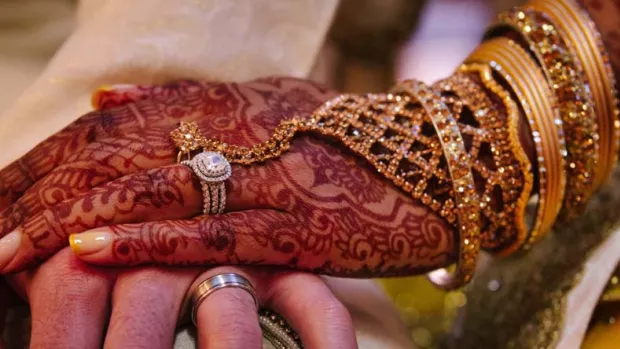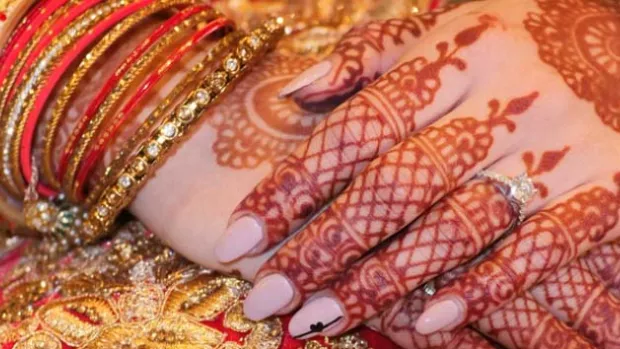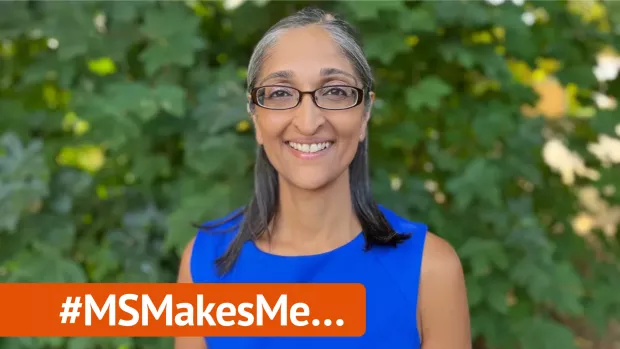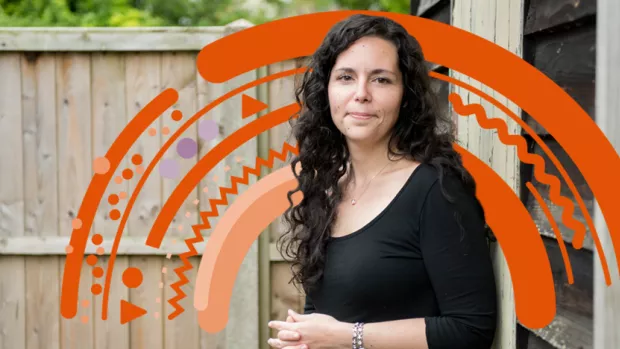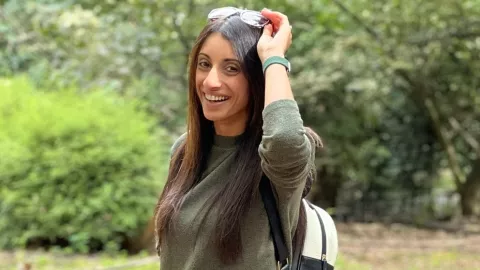
MS and stigma in the South Asian community: Nin’s story of 'hush hush culture'
We’ve worked with Asian MS to explore the stigma that can exist around MS in South Asian communities. In the first of a series of blogs, Nin shares her experiences of feeling like she shouldn’t be open about her MS - but choosing to speak out.
What I’ve found within the Asian community is that there’s a culture of being ‘proud’ and not sharing your business with everyone. But I want to take control of my own narrative.
I didn’t know anything about MS
I was diagnosed with MS in March 2022. It happened quickly and was very intense. My symptoms, including numbness and tingling, went from nothing to everything. I had several MRI scans which found lesions on my brain and spinal cord. Within a week of my symptoms starting, I was diagnosed with MS.
I didn’t know anyone with MS. I didn’t know anything about it. They sent me home with no information. In a way, I was relieved that the doctors knew what was happening to me. But it didn’t really sink in until that evening.
I started googling and finding really negative stories. My girls were only 4 and 6 at that time and it was really scary to think about my future as a young woman and mum
Attitudes in my community made me feel ashamed of MS
In my experience, people in Asian society look at you in a certain way when they find out you have a health condition. Like there is something wrong with you. And that you’ve done something wrong. There’s also a concern that it will reflect badly on your family. People with MS or other health conditions can be seen as lazy.
Even though I have a very supportive network, it didn’t stop comments such as: “we don’t have to tell anyone, do we?” and “Why do people need to know?”. This made me feel like I should be ashamed of what’s happened. Like I had to pretend to be perfect and not talk about my feelings.
I started my blog because I didn’t want to shy away or be embarrassed. When you’re truthful from the start, no one has the opportunity to say things behind your back.
Expectations from families
I also think that it’s a generational thing to a certain extent. When I speak to Asians of my generation, they ask how I’m coping, how I’m doing and are generally interested in my wellbeing. The older generation initially acted like I was dying! People have told me they’re praying my MS will be fixed. My gran once said to me “I hope you turn back normal”, like I’d turned into a completely different person. But this was simply due to her real lack of understanding and education, which is often due to our language barrier.
There’s a gender element as well. If you’re a woman, there are certain expectations from Asian families. You’re expected to just get on with things, not moan, not rest. And when you get married there’s a certain expectation of roles you need to uphold, a presence at family functions, pressures to maintain relationships and certain hopes you need to fulfil.
As a daughter-in-law I was concerned about how I would manage all these expectations alongside my MS. I was also concerned about onlookers, their opinions and bringing shame on the family, but thankfully this wasn’t the case. My husband and I took control of our narrative, and we faced the community as a family, welcoming empathy and declining sympathy.
Changes to my life after MS
My husband has been amazing, he is my rock. When I was diagnosed he did lots of research, and helped me make changes to my diet. His support hasn’t stopped.
I’ve still got limited feeling and sensation in parts of my body, including both my arms. My left side is weaker than the right and I experience constant shooting pains. I’ve got so used to it now, my pain threshold has definitely increased.
I started on the disease modifying therapy (DMT) Tecfidera (dimethyl fumarate) in July 2022, but relapsed in October. So, I changed to Ocrevus (ocrelizumab) in February 2023. It’s going well so far.
I was a full-time teacher at a special needs school, but my fatigue and reduced stamina wasn’t up for it. Now, I’m the family liaison at the same school, working alongside parents. It’s a role that allows me to still support the school but also supports my health, allowing me to be office based.
MS has allowed me to create my boundaries, and for others to respect them. Now I’ll tell people, or my husband will tell people, that I need rest.
Speaking out and finding a network
As soon as I was diagnosed, I started trying to find a network. At first, I struggled to find others with MS. So, I took control, went out there and started finding a community for myself through social media. I started volunteering for the Burton MS group, helping them with their social media. Then a volunteer approached me and said they thought I’d be really good for the Asian MS group.
I blog about my MS and share my experiences on social media. I receive messages from people who really relate to what I’m saying. I aim to give people a bit of courage and reassure them about speaking out. People worry about the backlash.
I’ve made lots of long-distance friendships and connections with people who understand what I’m going through.
Life has ways of pushing us. MS has changed me, it’s made me stronger. I’m not afraid to speak out and be open and honest now. It takes a lot of strength and courage to talk about MS openly in the Asian community. But I think it’s important to speak out. And it’s OK to go against what’s expected of you. I keep my head held high within the community, no matter what people say.
Are you affected by the issues raised in Nin’s story?
Get support by contacting Asian MS. They’re a national group that offers tailored and culturally-sensitive services for Asian people with MS, their carers, friends and family.

